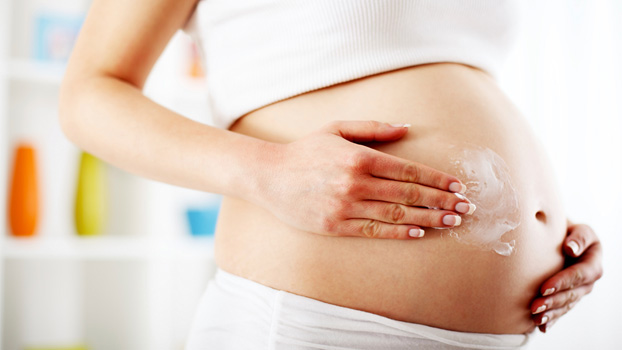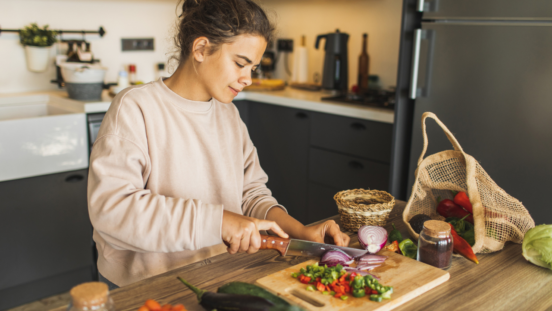No more moisturiser! New report criticised for OTT pregnancy chemical warnings

Ditch the shower gel, don’t buy new furniture for your nursery and put down that plastic wrap, ladies! These are just some of the new do’s and don’ts directed at pregnant and breastfeeding women by doctors, in a report that has being criticised as ‘alarmist’.
A new Scientific Impact Paper, published on Wednesday by the Royal College of Obstetricians and Gynaecologists (RCOG), has said that women should be made aware of potentially harmful common household chemicals during pregnancy, and urges them to ‘play it safe’, despite uncertainty about the chemicals' effects and surrounding risks.
It recommends that pregnant women consume fresh food whenever possible – reducing foods in cans or plastic containers – minimise the use of personal care products, avoid paint fumes, pesticides and new furniture, and only take over-the-counter medicines when absolutely necessary.
But the advice has provoked concern, with critics saying the report is alarmist and will just add to the average mother’s existing stress around what it is safe to do and consume during pregnancy.
Rather than scaremongering, the RCOG said that the purpose of the report was to address the fact that there is no official antenatal advice for women who are pregnant or breastfeeding about the potential risks of some household chemicals to their babies.
Women can be exposed to a dangerous mixture of hundreds of chemicals at low levels, through food packaging, household products, over-the-counter medicines and cosmetics, the report said.
It advises women to take particular care when handling products such as moisturisers, sunscreens and shower gels, as current regulations do not require manufacturers to label potentially harmful chemicals when only used in low doses.
SHOULD WE BE CONCERNED?
The report acknowledges that "it is unlikely that any of these exposures are truly harmful for most babies". However, "in view of current uncertainty about risks" it suggests that pregnant women:
- Use fresh food rather than processed foods whenever possible.
- Reduce use of foods/beverages in cans/plastic containers, including their use for food storage.
- Minimise the use of personal care products such as moisturisers, cosmetics, shower gels and fragrances.
- Minimise the purchase of newly produced household furniture, fabrics, non-stick frying pans and cars whilst pregnant/nursing.
- Avoid the use of garden/household/pet pesticides or fungicides (such as fly sprays or strips, rose sprays, flea powders).
- Avoid paint fumes.
- Only take over–the–counter analgesics or painkillers when necessary.
- Do not assume safety of products based on the absence of ‘harmful’ chemicals in their ingredients list, or the tag ‘natural’ (herbal or otherwise).
Co-author of the paper, Dr Michelle Bellingham, from the Institute of Biodiversity, Animal Health and Comparative Medicine, University of Glasgow, said: "While there is no official advice on this topic available to pregnant women, there is much conflicting anecdotal evidence about environmental chemicals and their potentially adverse effects on developing babies.
"The information in this report is aimed at addressing this problem and should be conveyed routinely in infertility and antenatal clinics so women are made aware of key facts that will allow them to make informed choices regarding lifestyle changes."
The paper recommends that the best approach for pregnant women is ‘safety first’, which is to “assume there is risk present, even when it may be minimal or eventually unfounded.”
Scientists and midwives have weighed in on the report, and not all are in support of its approach.
Tracey Brown, of Sense About Science, told BBC News online: "Pregnancy is a time when people spend a lot of time and money trying to work out which advice to follow, and which products to buy or avoid. The simple question parents want answered during pregnancy is: 'Should we be worried?'
"What we need is help in navigating these debates about chemicals and pregnancy. Disappointingly, the RCOG report has ducked this."
When it comes to raising the alarm about using cosmetics and toiletries such as shower gels, the Royal College of Midwives’ Janet Fyle suggested women are best to take the advice with caution and use their own common sense.
"There needs to be more scientific and evidence-based research into the issues and concerns raised by this paper," she said.




